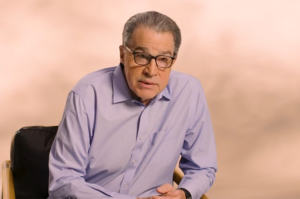FDA Delays Decision on Over-the-Counter Contraceptive Pill
The Food and Drug Administration on Friday again postponed its long-awaited decision on whether ''Plan B,'' the morning-after emergency contraceptive pill, should sell over the counter.
The Food and Drug Administration on Friday again postponed its long-awaited decision on whether “Plan B," the morning-after emergency contraceptive pill, should sell over the counter.
The main concern that postponed the decision was on how to ensure that only adults, and not teenagers, could use this pill without a doctor’s guidance.
“[We] cannot have an inspector in every pharmacy,” said the FDA Commissioner Lester Crawford, according to AP.
The FDA did, however, acknowledge that scientific evidence backed the safe nonprescription use of the pill by women 17 or older. Nonetheless, it called for 60 days of public comment on whether and how drug stores could enforce an age limit.
The morning-after pill contains a double dose of progesterone - the active ingredient in ordinary birth control pills - that, taken within 72 hours of unprotected sex, can lower the risk of pregnancy by up to 89 percent.
Currently, laws in seven states – Alaska, California, Hawaii, Maine, New Hampshire, New Mexico and Washington – already allow women to buy Plan B with neither a prescription nor age restrictions. Massachusetts is on track to becoming the eighth this fall.
The FDA’s 60-day delay does not affect Plan B sales in those states. However, it still brought a temporary defeat to contraceptive advocates, who say easier access could halve the nation’s three million annual unintended pregnancies.
Pro-family and pro-life groups have countered that claim and warned that such easy access would put women, teenagers and society at risk.
"Studies show that easy access to the morning-after pill does not decrease abortions or pregnancies, but it does increase sexually transmitted disease rates," said Wendy Wright, senior policy director for Concerned Women for America. "What's more, experts have found that men will frequently buy it, and some slip it to unsuspecting women. An age restriction would not hinder men who would buy the drug and give it to underage girls."
"Making the morning-after pill over-the-counter would only benefit those that profit from its increased sales – but the real price will be paid by women who suffer the health consequences," Wright said.
Currently more than 2.4 million Americans and millions more women use the drug.
Crawford did not say how soon after the 60 days of public comment that FDA would decide.



























